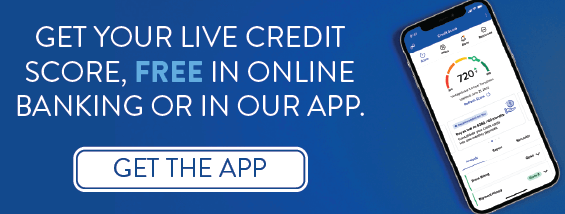5 Ways to Protect Yourself from Holiday Scams
The holidays are underway, but that doesn’t mean that shopping is yet complete. Unfortunately, it does mean that there are still opportunities for your identity and your financial information to be compromised.
Technology has improved over the years to help shoppers protect themselves, but the onus is still on you to take precautions against scams and hacks that are even smarter than the protections we have going for us.
Here are five ways you can continue to protect yourself this holiday season:
-
Stay informed
Whether you choose to get your news online or on a TV, large-scale data breaches and hacks often make headlines. Even your favorite personalities will put the spotlight on scams to keep your eyes out for. Don’t forget to bookmark resources like IdentityTheftCenter.org that can also keep you up to speed on the latest privacy alerts.
-
Be situationally aware
If you know your hands are going to be full of shopping bags when you’re done, try to keep the items you carry with you to a minimum. Not only will this help you to keep tabs on your belongings and avoid pickpocketing, but will make it easier for you to keep an eye out for shoulder-surfers who try to take a picture or write down your credit card information from behind hoping to walk away with your debit card information and pin number.
-
Be smart on your smartphone
Smartphones put shopping, banking, and stored information at our fingertips, but that also makes that data much easier to steal. Make sure that safeguards are in place on your phone in case it is lost or stolen, such as auto-lock or passcode protection. Try not to stay logged in to your banking or favorite shopping sites and remember that the password-saving functions make your account as easily accessible to someone else as they become to you.
-
Safety first online
An incredible amount of personal information is shared – and often stored – during online transactions. Be aware first of the URL you’re visiting; look for “https:” rather than “http:” when you get to your shopping cart, as the “s” indicates a level of online security. Consider using your credit card rather than debit card for online purchases because the consumer protections in place often make fraudulent charges easier to dispute and results in fewer of your hard-earned dollars lost if something does go wrong.
-
Be mindful of your accounts
It starts with saving receipts. Knowing where your money went during your shopping adventures is key, but making sure that the activity on your statements lines up is equally as important. Identity thieves will often make small dollar purchases to test out a card before purchasing a computer or big screen TV on your dime. By checking in on your accounts, you can be aware of any fraudulent charges while also keep your budget in check.
Data breaches and account hacks over the last few years have taught consumers – often the hard way – about the importance of protecting themselves. If you think that your information has been compromised in any way, contact your card issuer and/or bank at the first indication of any unauthorized or suspicious charges. In the event of suspected identity theft, you can also place a 90-day fraud alert on your credit report with the three major credit bureaus: Experian, TransUnion, and Equifax.
For more information on how to report and recover from identity theft, check out this helpful step-by-step guide from the Federal Trade Commission.
Need motivation to stick to your holiday savings goals? Let America Saves help! It all starts when you make a commitment to yourself to save. Take the first step today and take the America Saves pledge to save money, reduce debt, and build wealth over time. And it doesn’t stop there. America Saves will keep you motivated with information, advice, tips, and reminders to help you reach your savings goal. Think of us as your own personal support system.
Written by Tammy G Bruzon, America Saves at americasaves.org

